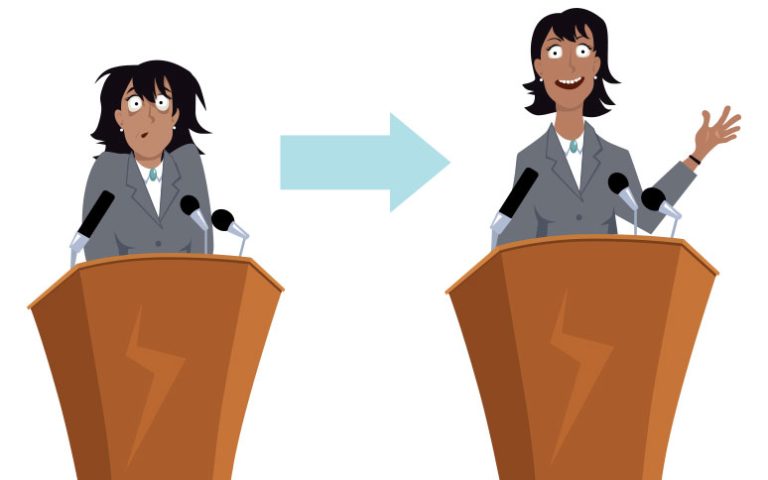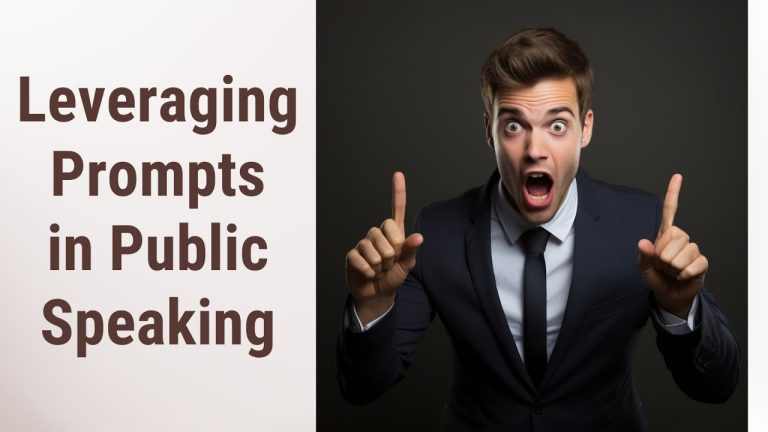Public Speaking Conference
Welcome to the wonderful world of public speaking conferences! If you’ve ever dreamed of becoming a confident and captivating speaker, then you’re in the right place. Get ready to explore the exciting realm of public speaking and discover how these conferences can transform your communication skills.
Imagine stepping up to a podium, taking a deep breath, and captivating an entire audience with your words. That’s the power of public speaking, and it’s a skill that can be learned and honed. At a public speaking conference, you’ll have the opportunity to learn from the best speakers in the industry, engage in interactive workshops, and gain invaluable insights that will help you become a more effective communicator.
Whether you’re a beginner or an experienced speaker, a public speaking conference offers a wealth of knowledge and inspiration. From learning how to craft persuasive speeches to mastering the art of storytelling, these conferences provide a platform for personal growth and development. So, get ready to unlock your full potential and join us on this exciting journey of self-discovery at a public speaking conference near you!

Unleashing the Power of Public Speaking: A Guide to Conferences
Welcome to the ultimate guide to public speaking conferences! Whether you’re a seasoned speaker or a beginner looking to improve your skills, attending a conference is a great way to enhance your knowledge, network with industry professionals, and gain valuable insights. In this article, we will delve into the world of public speaking conferences, offering you a comprehensive overview of what to expect, how to navigate through the event, and tips to make the most out of your experience.
1. Choosing the Right Conference for You
With numerous conferences taking place worldwide, selecting the one that aligns with your goals and interests is crucial. Start by researching conferences within your niche or industry, considering factors such as the theme, speakers, and location. Review past conference programs and attendee feedback to gauge the relevance and quality of the event. Additionally, take into account your budget, as some conferences may require travel and accommodation expenses.
Once you have narrowed down your choices, evaluate the conference’s agenda and the speakers scheduled to present. Look for renowned industry experts, thought leaders, and professionals whose expertise matches your areas of interest. A diverse lineup of speakers will offer you a wider perspective on the subject matter and enhance your learning experience.
Don’t hesitate to reach out to previous attendees or speakers through social media or industry forums to gather their experiences and recommendations. Their insights will provide firsthand accounts and help you make an informed decision about which conference to attend.
2. Preparing for the Conference
Preparing for a public speaking conference involves more than just packing your bags. It’s essential to make the most of this opportunity by doing thorough research and planning ahead. Begin by familiarizing yourself with the conference agenda and creating a personalized schedule. Select the sessions, workshops, and networking events you wish to attend, taking into consideration the topics that align with your goals and the speakers you want to hear.
Make a checklist of essential items to bring, such as business cards, a notebook and pen, comfortable attire, and any necessary presentation materials. Take some time to practice and refine your elevator pitch and introductions, as you will have numerous opportunities to make new connections.
Additionally, set clear objectives for the conference. Are you looking to gain knowledge, expand your network, or potentially secure new speaking opportunities? Having defined goals will help you navigate the conference with purpose and maximize your time and efforts.
3. Navigating the Conference
Attending a public speaking conference can be overwhelming, with multiple sessions, workshops, and networking events happening simultaneously. To make the most out of your experience, it’s crucial to plan your time wisely and stay organized. Arrive early to familiarize yourself with the venue, locate the session rooms, and identify any areas of interest, such as exhibitor booths or networking lounges.
During sessions, actively engage by taking detailed notes, participating in Q&A sessions, and connecting with other attendees. Take advantage of networking breaks to strike up conversations, exchange business cards, and build relationships with fellow speakers, industry professionals, and potential collaborators.
Don’t limit yourself to the official conference events; explore ancillary activities such as after-parties, meetups, or workshops hosted by industry influencers. These informal gatherings offer additional opportunities to connect and share knowledge in a more relaxed setting.
4. Reflecting and Applying Your Learnings
Attending a public speaking conference is just the beginning. Once the event is over, take the time to reflect on your experience and identify key takeaways. Review your notes, revisit the connections you made, and consider how you can apply your learnings to further enhance your speaking skills.
Follow up with the connections you made during the conference, whether it’s through a LinkedIn request, email, or social media interaction. Stay engaged by sharing relevant insights, exchanging resources, and nurturing the relationships you formed. Remember, networking is an ongoing process that extends far beyond the duration of the conference.
Lastly, integrate the knowledge and skills you acquired into your future speaking engagements. Apply the techniques, strategies, and insights gained from the conference to captivate your audience, deliver impactful presentations, and continue growing as a speaker.
Mastering the Art of Public Speaking
In addition to attending public speaking conferences, there are several key aspects to consider when striving to become an exceptional speaker. Let’s explore three crucial elements that can significantly enhance your public speaking skills.
1. Connecting with Your Audience
A successful speaker understands the importance of building a connection with their audience. Begin by researching and understanding your target audience’s demographics, interests, and challenges. Tailor your content to resonate with them, using relatable stories, metaphors, and examples. Engage your audience by asking thought-provoking questions, encouraging participation, and maintaining eye contact. Authenticity and passion are key to establishing a strong bond with your listeners.
2. Crafting Compelling Content
Compelling content is the backbone of any impactful presentation. Begin by clearly identifying your main message or thesis and structuring your content around it. Use storytelling techniques to engage your audience emotionally and make your message memorable. Incorporate relevant data, statistics, and examples to add credibility and support your arguments. Remember to keep your content concise, well-organized, and easy to understand. Practice your delivery to ensure a seamless flow and impactful delivery.
3. Leveraging Visual Aids
Incorporating visual aids can significantly enhance your message’s impact and engagement level. Utilize slides, videos, and images to complement your verbal delivery and help convey complex ideas in a visually appealing manner. Keep your visual aids simple, cohesive, and easy to read. Use powerful visuals that align with your content and reinforce your key points. However, be cautious not to rely solely on visual aids; remember that you are the main focus, and your delivery should be the centerpiece of your presentation.
Elevating Your Speaking Skills
As you continue on your journey to becoming a master public speaker, consider incorporating these additional tips and techniques into your practice:
- Practice regularly, seeking opportunities to speak in front of different types of audiences.
- Record and review your presentations to identify areas for improvement.
- Join public speaking clubs or associations to gain feedback and learn from experienced speakers.
- Invest in professional development resources such as books, courses, or coaching.
- Stay updated on the latest trends, techniques, and research in public speaking.
Remember, the journey to becoming an extraordinary public speaker is a continuous one that requires dedication, practice, and a commitment to self-improvement. Embrace every opportunity to learn, grow, and showcase your unique voice.
Key Takeaways
- Practice makes perfect – Rehearsing your speech before the public speaking conference will help boost your confidence.
- Connect with your audience – Engage with the audience through eye contact and storytelling to make your speech more impactful.
- Use visual aids – Incorporating visuals like slides or props can enhance your message and make it more memorable.
- Manage your nerves – Take deep breaths and utilize relaxation techniques to calm your nerves before speaking in front of a large audience.
- Seek feedback – Ask for constructive criticism after your presentation to improve your public speaking skills for future conferences.
Frequently Asked Questions
Are you curious about public speaking conferences? Here are some common questions and informative answers to help you learn more about them. Get ready to boost your public speaking skills and confidence!
1. How can attending a public speaking conference benefit me?
Attending a public speaking conference can have numerous benefits. Firstly, it provides an opportunity for you to improve your public speaking skills. You can learn from experienced speakers, receive feedback on your presentations, and practice in a supportive environment. These conferences also offer valuable networking opportunities, allowing you to connect with like-minded individuals as well as industry professionals. Additionally, attending a conference can help boost your confidence and overcome stage fright, as you’ll have the chance to speak in front of an audience and receive constructive criticism to help you grow.
Not only will you improve your speaking skills, but you’ll also gain knowledge on various topics related to public speaking. Conferences often feature expert speakers who share their insights and expertise. You can learn about effective communication techniques, storytelling, persuasive speaking, and much more. Overall, attending a public speaking conference can help you develop as a communicator, expand your professional network, and gain valuable knowledge that you can apply in various aspects of your life.
2. What types of sessions can I expect at a public speaking conference?
Public speaking conferences typically offer a diverse range of sessions to cater to different interests and skill levels. Some common sessions include keynote speeches, workshops, panel discussions, and breakout sessions. Keynote speeches are usually delivered by renowned speakers who share their expertise and inspire the audience. Workshops provide an interactive environment where you can participate in activities and exercises to enhance your speaking skills. Panel discussions feature a group of experts discussing specific topics and sharing their insights.
Breakout sessions allow attendees to choose from different topics and attend smaller, more focused presentations or workshops. These sessions often cover specific aspects of public speaking, such as body language, voice modulation, or storytelling techniques. It’s common to have a variety of session formats to ensure there’s something for everyone, whether you’re a beginner or a seasoned speaker. The goal is to provide a well-rounded experience that caters to the needs of diverse attendees.
3. How can I make the most out of a public speaking conference?
To make the most out of a public speaking conference, it’s essential to plan ahead and set goals for yourself. Firstly, familiarize yourself with the conference schedule and choose the sessions that align with your interests and goals. Prioritize attending sessions that can help you address specific areas of improvement or learn new speaking techniques. Take advantage of networking opportunities by introducing yourself to other attendees, exchanging contact information, and engaging in conversations about shared interests.
Actively participate in sessions and workshops by asking questions, sharing your experiences, and seeking feedback. Be open to learning from others and be willing to step out of your comfort zone. Take notes during sessions to help you remember key takeaways and ideas. Finally, after the conference, reflect on your experience and apply what you’ve learned in your future speaking engagements or practice sessions. By being proactive and intentional in your approach to the conference, you can maximize the benefits and leave with valuable skills and connections.
4. Are public speaking conferences suitable for beginners?
Absolutely! Public speaking conferences are suitable for speakers of all levels, including beginners. In fact, they are an excellent opportunity for beginners to learn and grow. Conferences often offer sessions specifically designed for beginners, covering fundamental speaking techniques and strategies. These sessions provide a supportive and encouraging environment where beginners can gain confidence and receive guidance from experienced speakers.
Besides beginner-focused sessions, conferences also offer a chance to observe and learn from more experienced speakers. Attending keynote speeches and panel discussions featuring renowned speakers can be inspiring and educational for beginners. Furthermore, networking with other attendees, including both beginners and experienced speakers, can provide valuable insights and mentorship opportunities. Don’t be afraid to attend a public speaking conference as a beginner – embrace the learning experience and take advantage of the resources and support available.
5. How can I overcome stage fright at a public speaking conference?
Stage fright is a common fear that many people experience when speaking in public. It’s important to remember that you’re not alone – even experienced speakers have felt nervous at some point. One effective way to overcome stage fright at a public speaking conference is through practice and preparation. Familiarize yourself with the content of your presentation and rehearse it multiple times. Practice in front of a mirror or in front of trusted friends or family members who can provide feedback and support.
Another helpful technique is to focus on your audience rather than your fear. Remember that the people attending the conference are there to learn and support one another, not to judge or criticize you. Visualize delivering a successful presentation and receiving positive feedback from the audience. Deep breathing exercises and relaxation techniques can also help calm your nerves before going on stage. Lastly, remind yourself of your accomplishments and previous successful speaking experiences to boost your confidence. With practice, preparation, and a positive mindset, you can overcome stage fright and deliver a memorable presentation at a public speaking conference.
The public speaking lesson you never had | DK . | TEDxNelson
Summary
So, to wrap things up, the public speaking conference was a great success! Students from different schools came together to learn and improve their speaking skills. They got to attend workshops, practice in front of an audience, and receive valuable feedback. The conference also featured inspiring speeches from guest speakers who shared their own experiences. Overall, it was a fun and educational event that helped boost confidence and communication skills.



